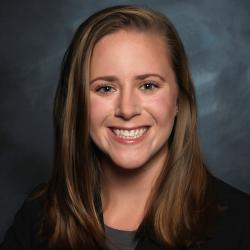When a group of scientists from Amira Pharmaceuticals wanted to start a new biotech after the company’s 2011 acquisition by Bristol-Myers Squibb, Celgene provided seed funding.
Eventually Celgene kicked in $35 million more for a research collaboration, an equity stake, and an exclusive option to acquire the startup, PharmAkea Therapeutics.
But the partnership fizzled, and this week PharmAkea sold the last of the two drug candidates it developed for fibrotic disease to Galecto, a clinical-stage biotech in Denmark. Financial terms weren’t disclosed.
Rob Williamson, a longtime biotech entrepreneur, joined PharmAkea as CEO in 2013 after the company formed its “build-to-buy”-style alliance with Celgene (now part of Bristol-Myers Squibb (NYSE: BMY).
In late 2016 Celgene extended the partnership for another nine months and tacked on another $9 million in funding, but the biopharma subsequently decided to give up its option to buy the startup.
Williamson, in an interview with Xconomy, said the challenge before him at the time was clear: find an acquirer for PharmAkea’s two programs, drugs designed to inhibit autotaxin and LOXL2, enzymes implicated in fibrotic diseases that function in distinct ways.
Instead, he discovered that while there was interest in the programs, no potential suitors wanted both.
“We started talking to a couple large crossover investors, and they said, we like autotaxin, or we like LOXL2,” he said. “What we did is we split the company in half.”
Once a team of about 25 people, PharmAkea shrank to 10 or so after parting ways with Celgene, then continued reducing its headcount as it negotiated deals for each of the assets, Williamson said.
In September 2019, it announced it had sold PAT-409, the autotaxin inhibitor prepared for Phase 1 testing, to South San Francisco-based Blade Therapeutics, which is advancing anti-fibrotic therapies.
The Galecto deal adds PharmAkea’s LOXL2 inhibitor PAT-1251, a Phase 2-ready drug, to its lineup of potential treatments for fibrotic diseases, including idiopathic pulmonary fibrosis. Galecto’s drug candidates target another enzyme, galectin-3.
The clinical-stage company’s backers include Novo Holdings, OrbiMed, Ysios, HBM Healthcare Investments, Sunstone Capital, M Ventures, Bristol-Myers Squibb, Maverick Ventures, Seventure, and SEED Capital.
As part of the deal, Carl Goldfischer of Bay City Capital—an early venture backer of PharmaAkea—joins the Galecto board of directors.

